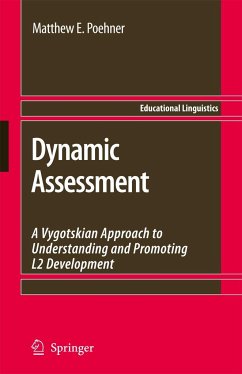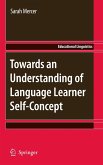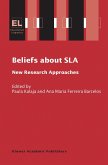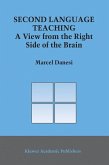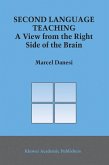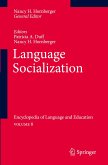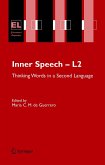Dynamic Assessment (DA) reconceptualizes classroom interactions by arguing that teaching and assessment should not be distinct undertakings but must be integrated as a single activity that seeks to understand learner abilities by actively supporting their ongoing development. DA is based in the Vygotskian notion of the Zone of Proximal Development (ZPD) which captures the uniquely human potential to exceed our present capabilities by working in cooperation with others whose dialogic interaction mediates us to higher levels of functioning. DA offers a framework for co-constructing a ZPD with learners in order to simultaneously reveal the full range of their abilities and promote development.
This book presents the first in-depth analysis of DA's application to particular problems of L2 development. It includes detailed discussions of the core theoretical tenets as well as guidelines for implementing DA principles in L2 classrooms. The book will be of interest to language teacher educators, language testers, classroom practitioners, and students and researchers in the areas of SLA, language pedagogy, and assessment.
This book presents the first in-depth analysis of DA's application to particular problems of L2 development. It includes detailed discussions of the core theoretical tenets as well as guidelines for implementing DA principles in L2 classrooms. The book will be of interest to language teacher educators, language testers, classroom practitioners, and students and researchers in the areas of SLA, language pedagogy, and assessment.

